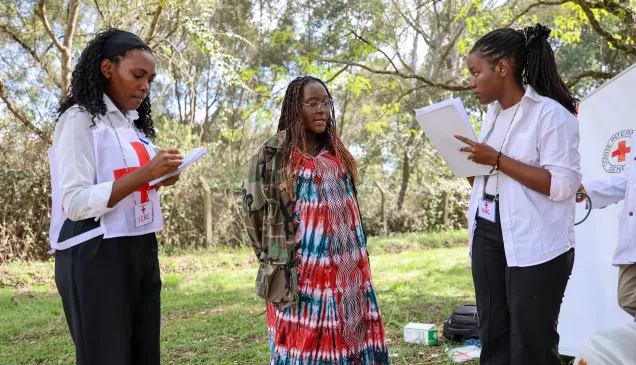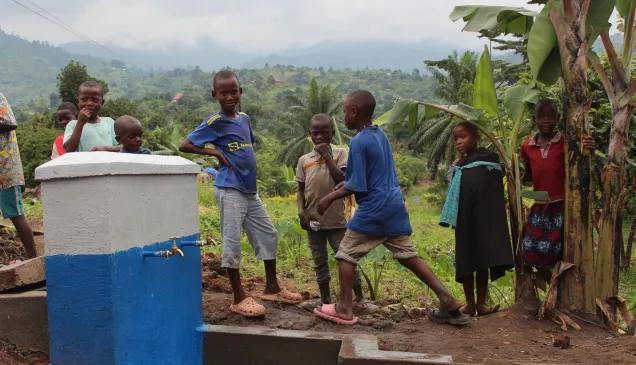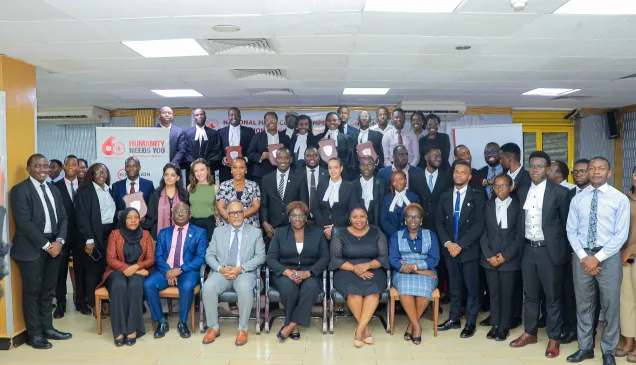Uganda: When a solar panel helps save lives
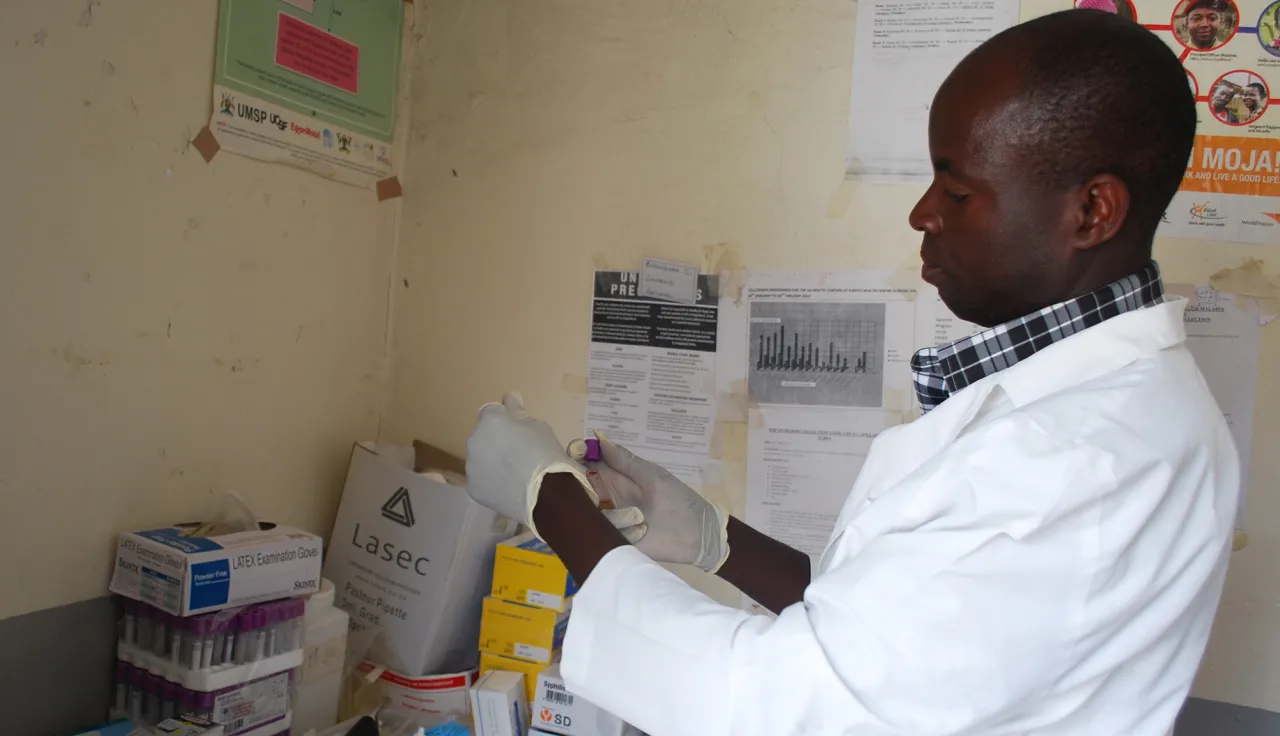
Life behind bars, with limited access to adequate health care, is unbearable. But sometimes it takes as little as a solar panel to make a difference. In Uganda and elsewhere around the world, the ICRC endeavours to improve the conditions in which detainees are held.
The inmate, a stocky fellow in yellow shorts and a T-shirt, sits back in the patient's chair and smiles, talking to a medical worker on a routine check up.
The venue is Katojjo prison, in Fort Portal, western Uganda. Positive for the immunodeficiency virus (HIV) and a tuberculosis survivor, the inmate cannot hide his joy at his current state of health: "I didn't die," he exclaims firmly. "I have energy and the hope that I will finish my sentence healthy and leave," he adds. Now able to smile cheerfully, the inmate survived a ten-month struggle with medication to treat tuberculosis, as he continues to battle HIV.
Saved by the sun
In other circumstances, his condition, and that of other prisoners, would have been different. Before 2012, frequent power cuts interrupted medical staff from carrying out vital tests. This slowed by days or even weeks the process of deciding to provide urgently needed medication to patients. Since then, the ICRC has installed a solar panel at the health centre that serves the prison. This gesture, which is part of the organization's effort to help improve detainees' health conditions, has ensured an uninterrupted power supply at the health centre.
Power cuts at night hampered the delivery of health services at the health centre, which also serves the nearby community. This made such acts as assisting women in labour to deliver, all the more difficult.
Ibrahim Yakubu, the officer in charge of Katojjo health centre says, "You find that the moment when power goes off is the time you want to carry out some tests, and the results are needed immediately. You cannot provide the results accordingly and you have to wait, or, some samples would get spoiled."
Daniel Mutaka, a nursing officer at the prison adds, "On a daily basis, we do routine HIV/AIDS counselling and on discovering that someone is HIV positive, we run a CD4 count (to determine how much damage the virus has done to the immune system), which needs power." Taking a patient's CD4 count once they tested positive for HIV was crucial, because it then determined how fast they could be enrolled on anti-retroviral drugs.
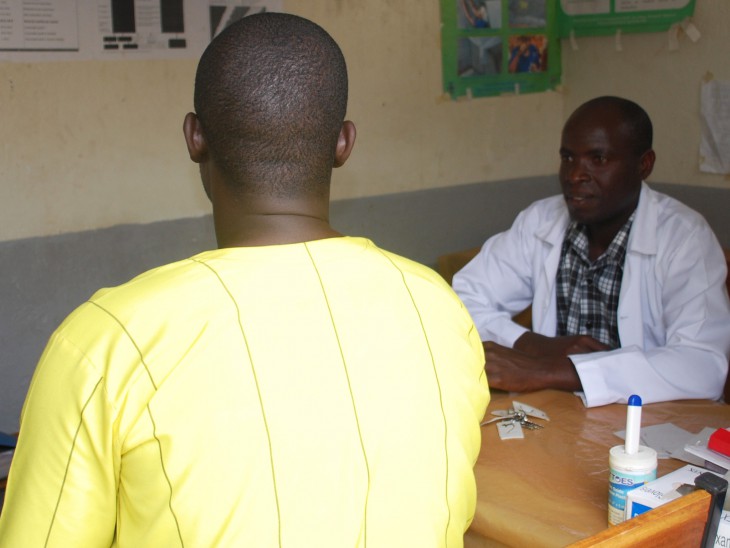
An inmate at Katojjo prison speaks to Daniel Mutaka, a nursing officer at the prison. CC BY-NC-ND/ICRC/J. K. Abimanyi
Solar power kicks in immediately
Mr Yakubu says, "At the moment, we do not wait. When it goes off, we continue carrying on the work with our solar panel. And the way it was set, when power goes off, for us we continue working uninterrupted. So, the microscope will continue working, our fridge will work, our Pima machine for CD4 counts will continue working." Thanks to all this, the medical staff are able to reach out daily to 50 prisoners and 30 patients from the nearby community.
The solar panel was installed at the prison in 2012, as part of an ICRC intervention in Luzira, Gulu and Katojjo prisons. The aim was to improve the healthcare given to detainees for tuberculosis, malaria and HIV/AIDS. The ICRC works to improve the conditions in which individuals are held in places of detention and the manner in which they are treated. In 2014, the organization visited 13,000 detainees in 51 detention facilities in Uganda.
Assistant Superintendent of Prisons, Innocent Majeme, the officer in charge of Katojjo prison, says, "On top of the panel, the ICRC helped us renovate what used to be the female section and converted it into a fully-fledged infirmary to help us deal with health problems within the prison. We have an isolation section for cases of tuberculosis, and we have an almost fully-fledged laboratory where we do tests like CD4 testing for those who are HIV positive."
Camilla Matteucci, the organization's Protection Coordinator in Uganda, says: "Small-scale solutions to practical problems such as the unreliability of power supply, have gone a long way to guarantee the continuity of the services and hence the overall positive impact for the prison population."
As for the prison inmate, his current state of health is a far cry from the sorry state he was in. "The truth is that the help I received was good because from the way I was hurting, I was headed for death. But the way they helped me, I didn't die," he says.
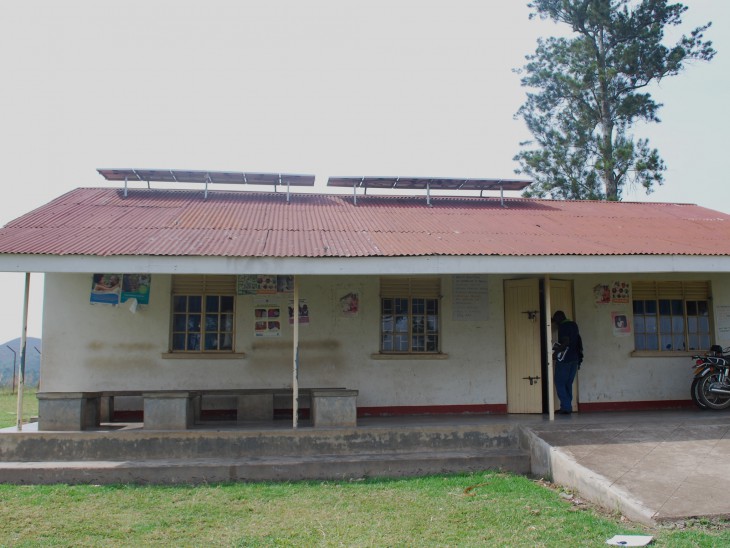
Katojjo Health Centre III, just outside the prison premises, where the solar panel is installed. CC BY-NC-ND/ICRC/J. K. Abimanyi

